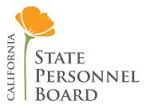 California public employees, including employees of state agencies, enjoy access to the expedited mechanism of resolving work related disputed and discipline imposed on them – a Skelly hearing. Skelly hearings are conducted for variety of disciplinary reasons. These reasons range from letters of reprimand and warnings to suspension or reduction in pay, administrative leave, AWOL termination and other types of terminations. Skelly hearings and SPB Appeal the discipline imposed on a public employee is fair or whether it is excessive, and in cases of termination – whether the employee was terminated for just case or whether the discipline was disproportionate the the alleged violations and the employee should be returned to work with or without back pay.
California public employees, including employees of state agencies, enjoy access to the expedited mechanism of resolving work related disputed and discipline imposed on them – a Skelly hearing. Skelly hearings are conducted for variety of disciplinary reasons. These reasons range from letters of reprimand and warnings to suspension or reduction in pay, administrative leave, AWOL termination and other types of terminations. Skelly hearings and SPB Appeal the discipline imposed on a public employee is fair or whether it is excessive, and in cases of termination – whether the employee was terminated for just case or whether the discipline was disproportionate the the alleged violations and the employee should be returned to work with or without back pay.
There are significant advantages to the SPB hearings as compared to filing a lawsuit in court. However, here is also one significant issue that you need to be aware of before you participated in the SPB appeal process:
The advantages are that you get to SPB hearing much faster than you would have any kind of hearing or trial in court. The process is much more simple and inexpensive, requiring very little paperwork and almost no discovery. It is also known that many administrative law judges that decide SPB disciplinary cases generally favor employees. In most cases (except AWOL cases and a few other exceptions) the burden of proving that employee was properly disciplined is on the employer. This is advantageous to employees, since the employer is the one who has to prove their case. On the other hand, in court the burden is on the employee- claimant to prove that the employer committed a legal violation, such as discrimination or retaliation took place.
The serious disadvantage of SPB hearings is this: if you lose at that hearing, and you don’t set the adverse findings aside through writ of mandate in court, which can be a complicated and expensive process then these specific findings become binding on a subsequent court action. In other words, if you claim during the SPB hearing that not only that there was no just cause for your termination, but you were also discriminated based on your disability, and the SPB hearing officer finds that no discrimination took place and the action against you was taken for legitimate reasons, that finding is binding. That is, it will prevent you from claiming discrimination in court under FEHA or related provisions. This is something that you and your attorney who prepares you for SPB hearing should keep in mind and thoroughly consider. While in some cases, it might be worth it for an employee to fight his case at an SPB hearing, in other cases, it might be better to skip it altogether and proceed with a civil lawsuit for a wrongful termination.
Before you appeal your discipline and termination, be sure that you are familiar with the basic SPB appeal rules in California. Also, make sure you keep this important SPB hearing tip in mind to make the best of your testimony during that hearing.